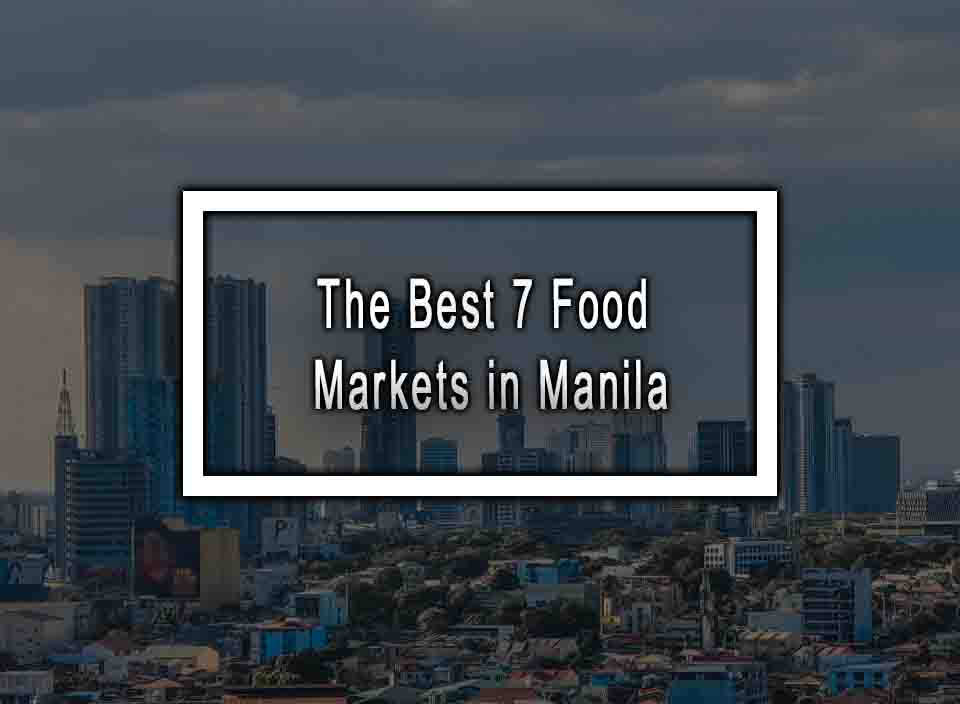Embarking on Manila’s Tastiest Tour
Welcome to Manila, Philippines, a bustling metropolis rich in history, culture, and absolutely mouthwatering cuisine. If you’re a foodie ready to embark on a gastronomic adventure, this is your go-to guide. We’ve searched and sampled, tasted and tested, and we’re presenting you with a delectable directory of the best local food markets in Manila. Fasten your seatbelt and prepare your tastebuds—it’s going to be a savory ride!
1. The Legazpi Sunday Market
Located in Makati City, Philippines, the Legazpi Sunday Market is a vibrant weekly event that started in 2005. It was established to showcase local artisans, food entrepreneurs, and organic producers. The market was a collaborative effort between the community and Barangay San Lorenzo, aiming to promote sustainable living and support small businesses while building a sense of community. The market has experienced significant growth, expanding from a few stalls to a large space in Legazpi Village. Every Sunday, the streets come alive with a variety of sights, sounds, and smells, creating an immersive experience. It has also become a platform for cultural exchange, preserving traditions and welcoming innovations, making it a magnet for a diverse crowd.
2. Quiapo Market
Nestled in Manila, Quiapo Market is a must-visit for those looking to experience Filipino culture. From its humble beginnings as a trading post for indigenous Filipinos, the market has grown in importance over the years. Situated near the Pasig River, it became a vital hub for commerce under Spanish colonization. Today, Quiapo Market reflects the diverse influences and complex history of the Philippines. Not only can visitors purchase a wide range of goods, including fresh produce and religious artifacts, but they can also immerse themselves in the vibrant atmosphere of Manila. Considered a cultural landmark, the market encapsulates the bustling energy of everyday Filipino life, making it a popular destination for both locals and tourists.
3. Salcedo Saturday Market
The Salcedo Saturday Market in Makati, Metro Manila, Philippines, is a lively weekend market that was established in 2004 by Barangay Salcedo residents. It serves as a platform for local farmers, artisans, bakers, and entrepreneurs to showcase their products. This market has gained popularity among both locals and tourists, offering a variety of goods such as fresh produce, gourmet foods, and Filipino handicrafts. Operating from 7:00 a.m. to 2:00 p.m. every Saturday in Jaime C. Velasquez Park, the market has evolved into a social gathering place where people can enjoy tasty food and live entertainment. Additionally, it has positively impacted the local economy, providing support for small businesses by establishing direct connections with consumers.
4. Sidcor Sunday Market
Located in Quezon City, Philippines, Sidcor Sunday Market is a vibrant weekend marketplace for local vendors and entrepreneurs. With fresh produce and handicrafts, it offers a diverse range of products. Growing from a small assembly to a bustling hive, it is known for its festive atmosphere and long stretch of stalls. Markets are important in Filipino culture as commerce and social gathering hubs. Sidcor Sunday Market continues this tradition, providing a space for people to shop, eat, and enjoy. Originally held in a parking lot, it now resides at Eton Centris Walk, offering more space and organization. It retains its charm and showcases the rich culture of the Philippines through locally-made products and regional foods.
5. Greenfield District Market
The Greenfield District Market is a vibrant outdoor marketplace within the Greenfield District. It offers a mix of residential, commercial, and leisure spaces. The market is popular on weekends and showcases local artisans, organic farmers, and food vendors. It features locally sourced products and gourmet delicacies. Visitors can stroll through aisles lined with fresh produce, crafts, and unique finds. The market also offers live music performances and workshops, contributing to a community-centric vibe. It fosters a sense of camaraderie among attendees, uniting them through a shared appreciation for wholesome goods and a greener lifestyle. The Greenfield District Market is also eco-conscious and provides a platform for small businesses to flourish.
6. Farmers Market Cubao
Farmer’s Market Cubao in Quezon City, Philippines is a bustling hub of fresh produce and local goods. It offers a wide array of vegetables, fruits, meats, seafood, and specialty food items. A go-to destination for locals and chefs, it guarantees the highest quality ingredients. The market’s vibrant atmosphere, with passionate vendors and a mosaic of vibrant colors, is a sight to behold. Beyond raw ingredients, it also serves as a cultural centerpiece, offering Filipino delicacies, plants, and flowers. Open daily, it encourages shoppers to negotiate prices and discover new products, fostering dynamic interaction between residents and food producers. It is not just a place for commerce, but a social venue that showcases shared culinary traditions and community support.
7. Baclaran Market
Baclaran Market in Parañaque City, Metro Manila, Philippines, is a lively hub for commerce and culture. With its wide array of bargain goods, the market attracts locals and tourists alike. Stalls and stores offer fresh produce, seafood, meat, clothing, accessories, and religious artifacts, especially those connected to the Mother of Perpetual Help. Adjacent to the market is the renowned Baclaran Church, which holds historical significance and draws thousands of devotees for its weekly novena. Wednesdays and weekends are the liveliest, as churchgoers and bargain hunters flock to create a vibrant melting pot of sights, sounds, and scents that epitomize Filipino commerce and community life.
Full Stomach, Happy Heart: Saying Adieu
Those were our top picks for the best local food markets in Manila. So whether you’re a local seeking to spice up your culinary experiences or a tourist looking to immerse in Manila’s vibrant food culture, these markets offer a sensationally satisfying savor for every palate. Happy eating, and until our next mouthwatering adventure – goodbye!
Food Markets in Manila FAQ
1. Are these food markets in Manila open every day?
Most food markets in Manila are open every day. However, some specific ones like the Salcedo Market and the Legazpi Market only operate on weekends.
2. How are the prices in these food markets in Manila?
Prices in these markets can vary widely depending on the product and the location. Generally, prices in these markets are cheaper than in supermarkets, especially for fresh produce. However, some items may have higher prices due to rarity or high demand.
3. Do the food markets in Manila accept credit cards?
Traditional food markets in Manila usually only accept cash. Some modern or upscale markets might accept credit cards, but it’s best to bring cash to ensure you can pay for your purchases.
4. Do I need to take any specific precautions while shopping at these markets regarding food safety?
Basic precautions include ensuring that perishable food items like meat and seafood are fresh and kept at suitable temperatures. Avoid street food that has been sitting out in the open for long periods of time. Lastly, wash fruits and vegetables thoroughly before consumption.
5. Are these food markets in Manila accessible by public transit?
Yes, most food markets in Manila are accessible by public transit, including jeepneys, trams, and taxis. Some are even within a short walking distance of MRT or LRT stations.












